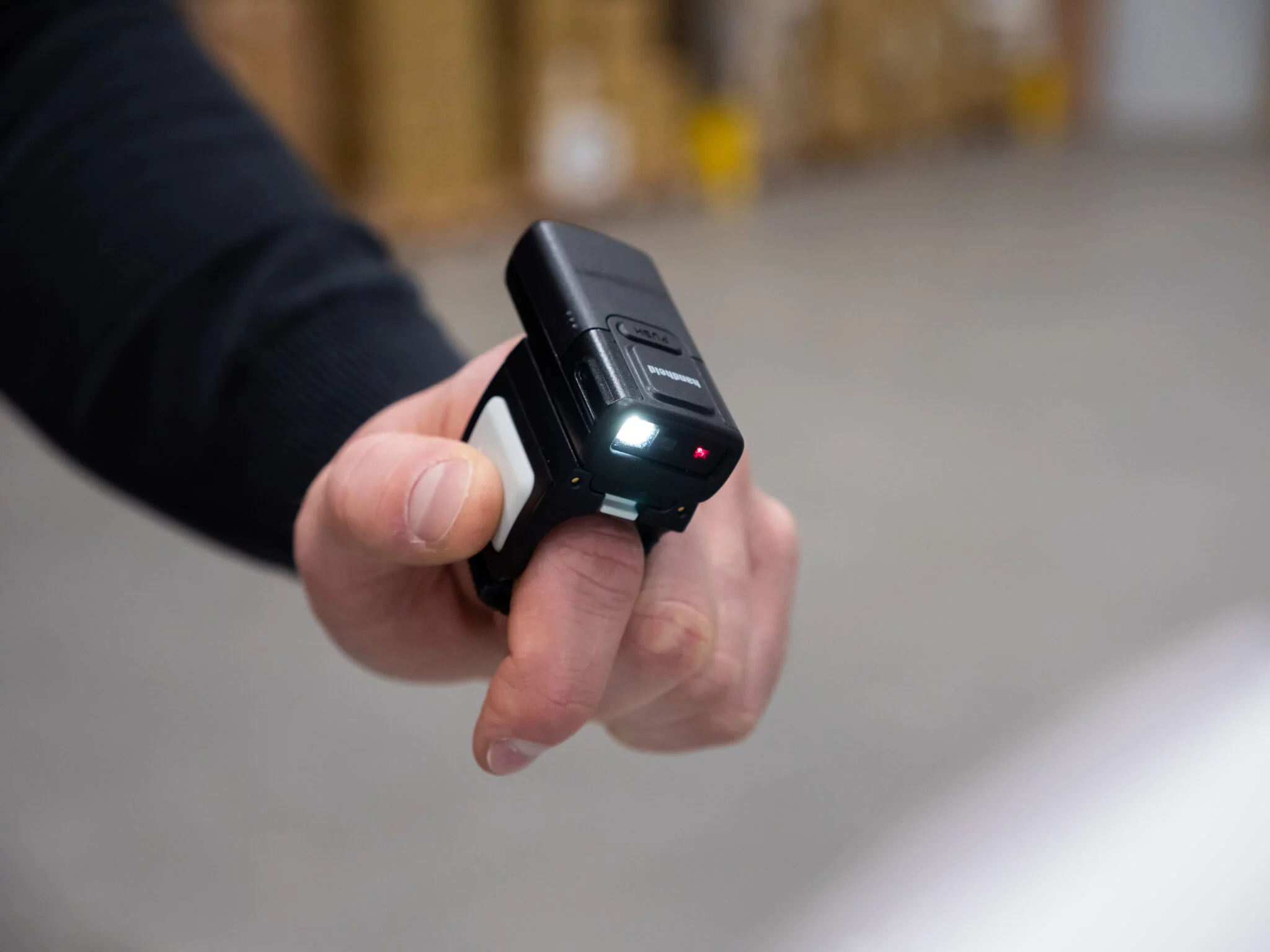DENSO WAVE EUROPE, member of the Toyota group, has developed and deployed various RFID readers and solutions, which are used for inventory management, in-store product movements at the POS, for warehouse management or shipping controls. The experts for mobile data collection and auto-ID solutions know that RFID technology will continue to play a significant role in optimising processes and bringing the benefits of digitisation to physical locations.
One of these experts at DENSO WAVE EUROPE is David Walker, who has specialised in RFID. “Two of the key advantages of RFID are precision and speed,” he says. “However, there are so many more benefits of the RFID technology, especially in retail and logistics with their complex structures and new challenges.”
Walker refers to the increasing demand of digitisation processes in general and during the corona virus pandemic in particular. “New business models are emerging quickly nowadays, hence, supply chains will need to make shifts to accommodate the new demands. RFID is the technology that can help companies, especially retailers and logisticians, meet a new future,” explains Walker.
RFID increases sales and profit
As the old saying goes “time is money”, and RFID saves companies, especially in retail, logistics, warehouse management, at the POS, and inventory management a lot of time. “It can be stressful to scan individual items one at a time, which can also lead to human error”, says Walker. “With RFID however, employees can quickly scan an entire area within seconds, rather than having to point at and scan each item individually. DENSO’s RFID readers impress, among other things, with their outstanding reading speed. As we have developed a range of RFID devices, DENSO offers the right one for every purpose.” More information about DENSO WAVE EUROPE’s RFID readers and solutions and how they can optimise processes in retail, logistics, inventory management, POS systems, warehouse management, and shipping controls can be found at https://www.denso-wave.eu/en/denso-products/rfid.html.
RFID implementation can be flexible as supply chains can implement RFID solutions at any point in their processes. “The key benefit of this concept is that when distributing RFID tagged items to different locations, these items do not need to be tagged over and over again. Instead, accurate interpretation of cases and pallets is possible along the way,” says Walker. “The further upstream in the supply chain a product is tagged, the more benefits it garners. Thus, it provides more accuracy,” he continues. Greater inventory accuracy also leads to more customer satisfaction and ultimately to more turnover and profit.
RFID is the present and the future
In the current omni-channel landscape, it has become even more important to have the products customers want or need in stock. Otherwise, it is almost impossible to face – and service against – the ever-increasing competition on the market. The corona virus pandemic has even accelerated the processes in this development.
For instance, when a customer sees an item online and rushes over to the brick-and-mortar store to buy it, only to find that the desired item is not actually in stock even though the “Inventory Management System” says it is. This customer is not likely to visit either the online shop or the brick-and-mortar location again anytime soon. The solution: better stock accuracy with RFID. It virtually eliminates “Out of Stocks” due to poor inventory accuracy. The inventory-tracking technology can offer up to 99% accuracy, ensuring stock is replenished and thus minimize out-of-stock problems. RFID is not only essential for inventory accuracy, however. It can ultimately improve the employee and customer experience, resulting in more sales and lower costs. “If a product is not there, employees cannot sell it. Case studies tell us that in retail the adoption of RFID have increased sales by over 10%, whilst most see an increase of five of 6%,” adds Walker.
All in all, RFID is extremely multifaceted, which makes it so beneficial for numerous industries – from cashless store concepts to supply chain management, and even tracking lost luggage by airlines.
“As DENSO’s mobile RFID computers are extremely robust, they can be used ideally for work in the warehouse, but also in stores – and practically any location. Cloud-based mobile applications in combination with DENSO’s RFID devices are the perfect end-to-end solution for any company that wants to optimise its processes,” explains Walker.
The theoretical basis for RFID was already born in 1948. Since then, RFID has been further developed and continues to be a vital area of exploration, especially as it relates to business intelligence in our fast-paced century. Thus, it will be essential in order to work more efficiently now and in the future. DENSO provides further information about the benefits of RFID and NFC, and their auto-ID solutions, mobile computers, and innovative models of the QR Code at https://www.denso-wave.eu.
For the European market, DENSO WAVE EUROPE is the contact point for all enquiries on RFID, QR Codes, mobile data collection, handheld terminals, and scanners. The durable and robust terminals and scanners manufactured by DENSO are to be found in storage, logistics, at the POS, in production, and field & sales automation applications.
Short and informative video clips about the terminals, scanners, and solutions from DENSO WAVE EUROPE can now be viewed on YouTube. The clips include the 20th anniversary of the QR Code, a company presentation, and introductions to the various devices for mobile data capture such as the BHT-1500, BHT-1400 and the GT20 scanner. For more information, click on the this link below: https://www.youtube.com/channel/UCHp4Yboj7IccPlSeRxQ6yBQ.











